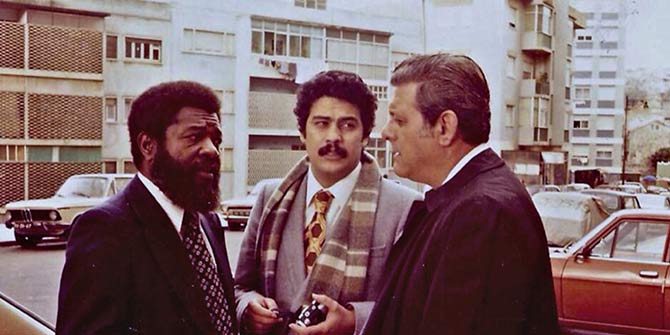Nicodemus Minde says this book offers not only Thabo Mbeki’ s story but the history of the nationalist and anti-apartheid struggle movement of the African National Congress.
Adekeye Adebajo, the director of the Institute for Pan-African Thought and Conversation at the University of Johannesburg writes a short and succinct biography of former South African President Thabo Mbeki. For a writer who has extensively written and commented on the African agency in various books and commentaries, he successfully simplifies the complex figure of Thabo Mbeki. The book meticulously captures the thoughts, personality and idiosyncrasies of a man whose legacy in South Africa and abroad is mixed.
The book’s central thesis is the juxtaposition of Thabo Mbeki’s intellectualism viewed in his nationalistic, Pan-African and African renaissance vision with other African personalities (p.11). Departing from other biographies of Mbeki, the book offers a careful analytical balance between Mbeki’s domestic policy and foreign policy. Drawing from Mbeki’s illustrious career in politics, the book captures the life and times of an important African figure of his generation.
The book employs a consistent juxtaposition style throughout. It begins with a philosophic introduction where Thabo Mbeki is juxtaposed with Kwame Nkrumah, the great Ghanaian leader. Mbeki’s intellectual thoughts and visions are compared to Nkrumah, one of the earliest African thinkers of the Pan-African movement. Through what the author terms as “Africa’s philosopher-kings”, Nkrumah and Mbeki’s romanticism around the idea of African unity is highlighted. Through the creation of the Pan-African organizations of the Organization of African Unity (OAU) and its successor the African Union (AU), Nkrumah and Mbeki’s intellectual and visionary leadership are compared. Their personalities, leadership styles, performance and legacies are also compared and contrasted (p.18). We see further comparisons and contrasts continue throughout the book. The book highlights the highs and the lows of Mbeki’s political life through a parallel juxtaposition in terms of ideological intellectualism with leaders such as South African anti-apartheid leaders such as Chris Hani, Joe Slovo and Oliver Tambo.

The careful balance between his legacy as South African president (the domestic president) and his international forays are well explained in the book. Mbeki’s complex relationship with Nelson Mandela and other African National Congress (ANC) leaders in South Africa brought out his deft and shrewd personality. His disastrous HIV/AIDS policies and his inability to tackle corruption dented his domestic legacy. But it was his craze with African identity and solidarity that shaped his international image. His romanticism with African Renaissance was shaped by the thoughts and writings of Nnamdi Azikiwe of Nigeria, Cheikh Anta Diop and Pixley Seme of Senegal (p.85). Mbeki’s African Renaissance was by design, a grand strategy to place South Africa as a continental player and by extension a global player on matters of trade and political influence. This can best be seen in the reinvigoration of trade ties with Africa’s other powerhouse Nigeria. Mbeki played a leading role in the establishment of the African Union in 2002, the New Partnership for African Development (NEPAD) and the African Peer Review Mechanism (APRM), two important demonstrations of African agency in political and economic governance.
The major strength in this book is Mbeki’s intellectual and philosophic contribution to the reshaping of what we now call as the new Pan-Africanism. Mbeki’s grand idea of an African renaissance shaped the renewal of an African agency and most precisely, it offered an alternative to the Eurocentric conceptions and construction of Africa. It is this idealization that shaped Mbeki’s African foreign policy which is seen in the peacemaking efforts in the Democratic Republic of Congo (DRC), Burundi, Zimbabwe and Cote d’Ivoire.
Through Thabo Mbeki’s story, we are able to understand the story of the nationalist and anti-apartheid struggle movement of the African National Congress (ANC). The clandestine and covert strategies employed by ANC throughout the struggle can be read. Mbeki’s foreign assignments for the ANC in England, Nigeria, Botswana and Swaziland came to influence his Afrocentric foreign policy.
At a time, the African continent is toying with the idea of new Pan-Africanism – imbued with Mbeki’s idea of African renaissance, the book can offer an important historical context to the same.
Thabo Mbeki. Adekeye Adebajo. Ohio University Press. 2017.
Nicodemus Minde (@decolanga) is a PhD student in International Relations at the United States International University – Africa (USIU- Africa)
The views expressed in this post are those of the author and in no way reflect those of the Africa at LSE blog, the Firoz Lalji Centre for Africa or the London School of Economics and Political Science.





